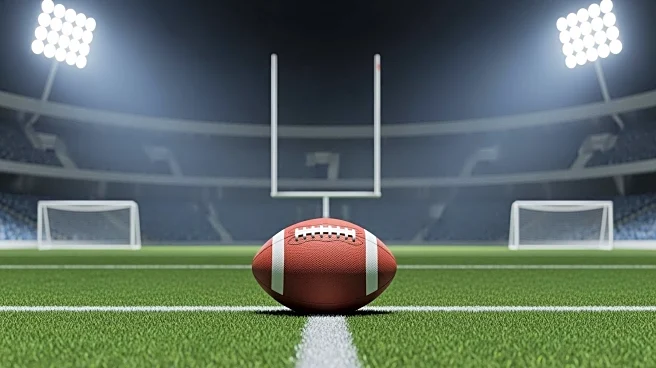What's Happening?
During a recent NFL game between the Kansas City Chiefs and the Detroit Lions, a controversial penalty was called that nullified a touchdown by Lions quarterback Jared Goff. On a fourth down play, Goff went in motion as a wide receiver and caught a touchdown pass,
which was initially celebrated by the Lions. However, a flag was thrown for illegal motion, nullifying the touchdown. Lions coach Dan Campbell revealed that the penalty decision came directly from the league office, a rare intervention that surprised many. The flag was thrown unusually late, over a minute after the touchdown was scored, leading to confusion and frustration among the Lions players and fans.
Why It's Important?
This incident highlights the influence and intervention of the NFL league office in game decisions, raising questions about the fairness and transparency of officiating. The late penalty call affected the game's outcome, forcing the Lions to settle for a field goal instead of a touchdown. Such interventions can impact team morale and fan trust in the league's integrity. The Chiefs, already favored to win the Super Bowl, benefit from favorable calls, as suggested by a study from the University of Texas at El Paso. This situation underscores the need for consistent and transparent officiating to maintain the credibility of the sport.
What's Next?
The Lions and their fans may seek further clarification from the NFL regarding the unusual intervention. This incident could prompt discussions within the league about the role of the league office in officiating and the need for clearer guidelines. Teams affected by such decisions might push for changes to ensure fair play. The NFL may face pressure to review its officiating processes to prevent similar controversies in the future.
Beyond the Headlines
The intervention by the NFL league office raises ethical questions about the influence of external factors on game outcomes. It also highlights the potential impact of popular teams receiving favorable treatment, which could skew competition and affect the league's reputation. Long-term, this could lead to calls for reform in how games are officiated and how penalties are assessed.















